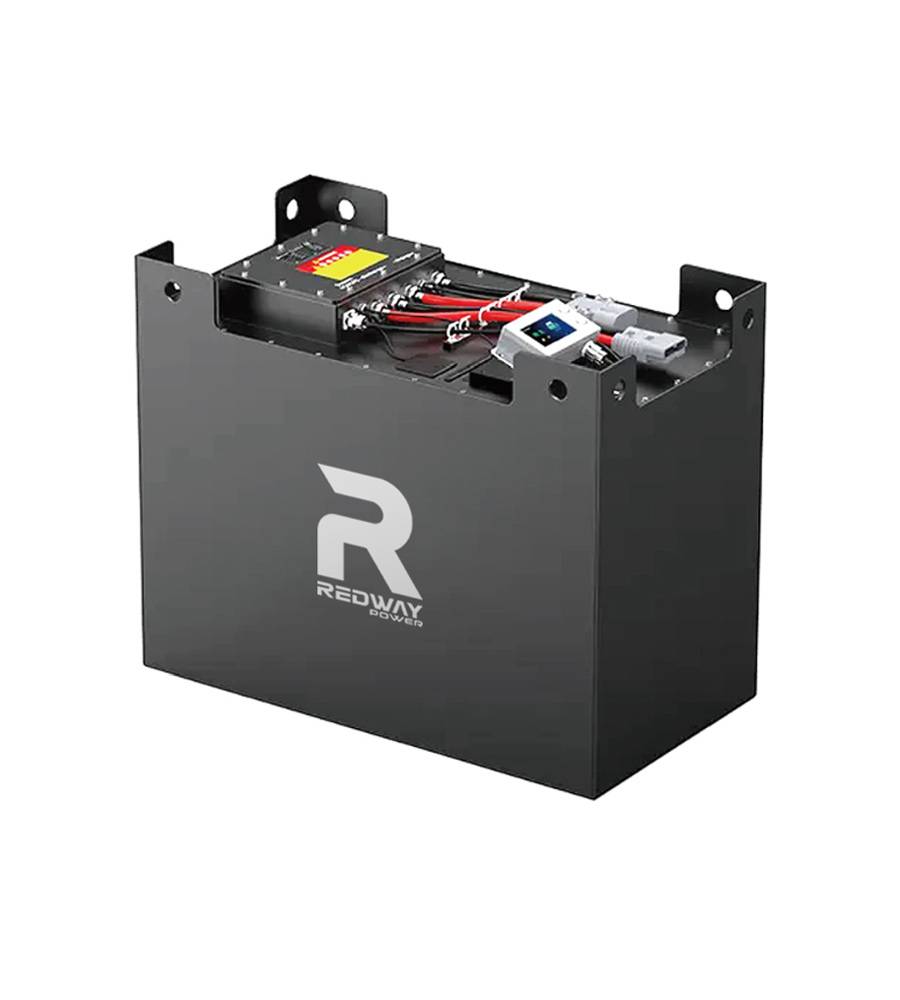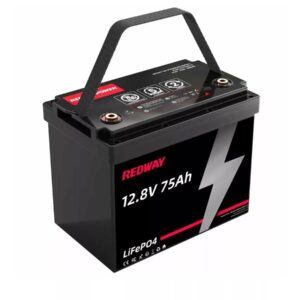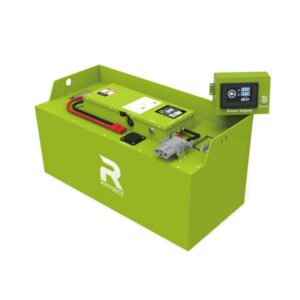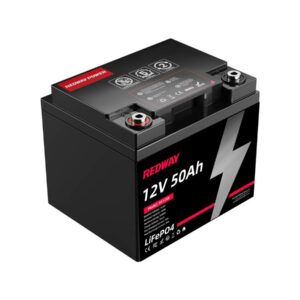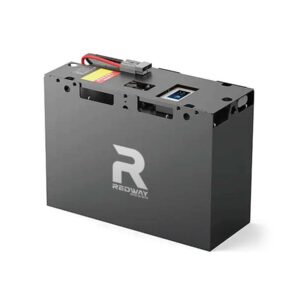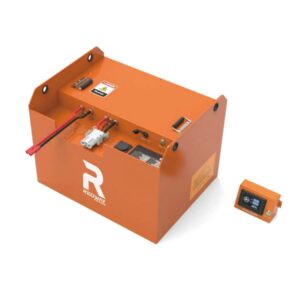Description
Our 36V 700Ah LiFePO4 Forklift Battery is engineered for heavy-duty industrial operations, combining high energy density with unmatched durability. As a leading lithium battery manufacturer, we specialize in OEM solutions that deliver superior performance, extended lifespan, and reduced operational costs for material handling fleets.
Key Features
High-Capacity Powerhouse: 36V/700Ah configuration provides 25.2 kWh energy output, supporting uninterrupted operation for up to 18 hours under full load.
Rapid Discharge Capability: Handles 320A continuous and 480A peak discharge (5-second bursts) for demanding lifting and transportation tasks.
Ultra-Long Cycle Life: 4,000+ cycles at 80% depth of discharge (DOD), outperforming lead-acid batteries by 3x lifespan with minimal capacity degradation.
Rugged Design: IP65-rated enclosure and reinforced metal shell ensure dustproof, waterproof, and shock-resistant performance in harsh environments.
Smart BMS Integration: Advanced 4G-enabled Battery Management System monitors SOC, temperature, and voltage in real time, preventing overcharge, overcurrent, and thermal risks.
Product Description
Designed for OEM and wholesale buyers, our 36V 700Ah LiFePO4 Forklift Battery optimizes warehouse logistics with fast charging (0-100% in 2.5 hours) and modular dimensions (967 x 515 x 779 mm). The lithium battery¡¯s lightweight 330 kg design reduces forklift energy consumption while maintaining compatibility with Class I-III equipment. Proprietary cell-balancing technology ensures <3% annual capacity loss, backed by a 5-year warranty for long-term reliability.
What Makes 36V 700Ah Lithium Forklift Batteries the Best Choice for Industry?
A 36V 700Ah lithium forklift battery delivers high energy capacity, long cycle life, and advanced safety features, making it ideal for industrial forklifts requiring extended runtimes and fast charging. Its lightweight design and smart Battery Management System (BMS) optimize performance and reduce operational costs compared to traditional lead-acid batteries.
What are the key technical specifications of 36V 700Ah lithium forklift batteries?
36V 700Ah lithium forklift batteries typically operate at a nominal voltage of 38.4V with an energy capacity around 26.5 kWh. They support continuous discharge currents up to 320A and peak currents up to 480A for short bursts. These batteries feature IP65-rated water and dust resistance and weigh approximately 240 kg. The cycle life exceeds 3,500 to 6,000 full charge cycles depending on depth of discharge, making them durable for industrial use.
How do lithium forklift batteries improve forklift performance?
Lithium forklift batteries provide consistent power output without voltage drops common in lead-acid batteries, enabling forklifts to maintain speed and torque under load. Their lighter weight improves maneuverability and reduces wear on forklift components. Fast charging capabilities minimize downtime, allowing quick top-ups during breaks. The high energy density extends operational hours, increasing productivity in warehouses and logistics centers.
What safety features do 36V 700Ah lithium forklift batteries include?
These batteries incorporate advanced safety measures such as overcharge protection, thermal management, short-circuit prevention, and automatic shutdown in case of overheating. The integrated Battery Management System (BMS) monitors voltage, current, and temperature in real-time, ensuring safe operation. The sealed LiFePO4 chemistry eliminates acid spills and reduces fire risk, while robust metal casings provide physical protection.
How long is the cycle life and lifespan of these lithium batteries?
36V 700Ah lithium forklift batteries offer a cycle life ranging from 3,500 to over 6,000 cycles at 70-80% depth of discharge, significantly surpassing lead-acid batteries which typically last 500-1,500 cycles. This translates to a lifespan of 8 to 10 years under normal usage, reducing replacement frequency and maintenance costs.
How are 36V 700Ah lithium forklift batteries charged and maintained?
They support rapid charging, typically completing a full charge within 2 to 4 hours using compatible chargers with CC/CV (constant current/constant voltage) protocols. Maintenance is minimal compared to lead-acid batteries, requiring no watering. Recommended practices include avoiding deep discharges, storing batteries at moderate temperatures (20-25°C), and regular inspections to ensure optimal performance and longevity.
Which industries benefit most from using 36V 700Ah lithium forklift batteries?
Industries with intensive material handling needs such as warehousing, logistics, manufacturing, cold storage, and distribution centers benefit greatly. These batteries enable longer shifts, faster turnaround times, and reduced downtime, improving overall operational efficiency in demanding environments.
How do lithium forklift batteries compare to traditional lead-acid batteries?
Lithium batteries offer higher energy density, longer cycle life, faster charging, and are maintenance-free compared to lead-acid batteries. They weigh less, reducing forklift wear and improving handling. Lithium batteries also eliminate acid spills and toxic emissions, making them safer and more environmentally friendly. Although the upfront cost is higher, total cost of ownership is lower due to longer lifespan and reduced maintenance.
What customization and OEM options are available for these forklift batteries?
Manufacturers offer customizable solutions including different voltage ratings, capacities, sizes, and communication protocols such as CAN bus, RS485, and 4G for remote monitoring. OEM and ODM services support tailored battery packs to fit specific forklift models and operational requirements.
How does the Battery Management System (BMS) optimize battery performance and safety?
The BMS continuously monitors battery parameters including voltage, current, temperature, and state of charge. It balances cell voltages to prevent overcharging or deep discharging, protects against short circuits and overheating, and communicates real-time data for predictive maintenance. This intelligent management maximizes battery life and ensures safe operation in harsh industrial conditions.
What environmental benefits do lithium forklift batteries provide?
Lithium forklift batteries reduce carbon footprint by enabling energy-efficient operations and eliminating hazardous acid spills. Their longer lifespan means fewer battery replacements and less waste. Additionally, lithium batteries can be recycled, supporting circular economy initiatives. Their use aligns with sustainability goals in industrial sectors.
How does temperature affect the performance and lifespan of 36V 700Ah lithium forklift batteries?
Extreme temperatures can impact lithium battery performance and longevity. Optimal operating temperatures range from -20°C to 55°C, with charging recommended between 0°C and 45°C. High temperatures accelerate degradation, while very low temperatures reduce available capacity temporarily. Advanced thermal management and insulation in battery design mitigate these effects to maintain consistent performance.
Chart: Comparison of Lithium vs Lead-Acid Forklift Batteries
| Feature | Lithium (36V 700Ah) | Lead-Acid Battery |
|---|---|---|
| Nominal Voltage | 38.4V | 36V |
| Energy Capacity | ~26.5 kWh | ~20 kWh |
| Cycle Life | 3,500 – 6,000 cycles | 500 – 1,500 cycles |
| Weight | ~240 kg | ~350-400 kg |
| Charging Time | 2 – 4 hours | 8 – 12 hours |
| Maintenance | Minimal (no watering) | Regular watering required |
| Safety | Advanced BMS, sealed | Risk of acid spills |
| Environmental Impact | Recyclable, less toxic | Acid waste, higher emissions |
Chart: Battery Cycle Life vs Depth of Discharge (DoD)
| Depth of Discharge (%) | Cycle Life (approximate) |
|---|---|
| 30% | 6,000+ cycles |
| 50% | 5,000 cycles |
| 70% | 3,500 – 4,000 cycles |
| 80% | 3,000 cycles |

